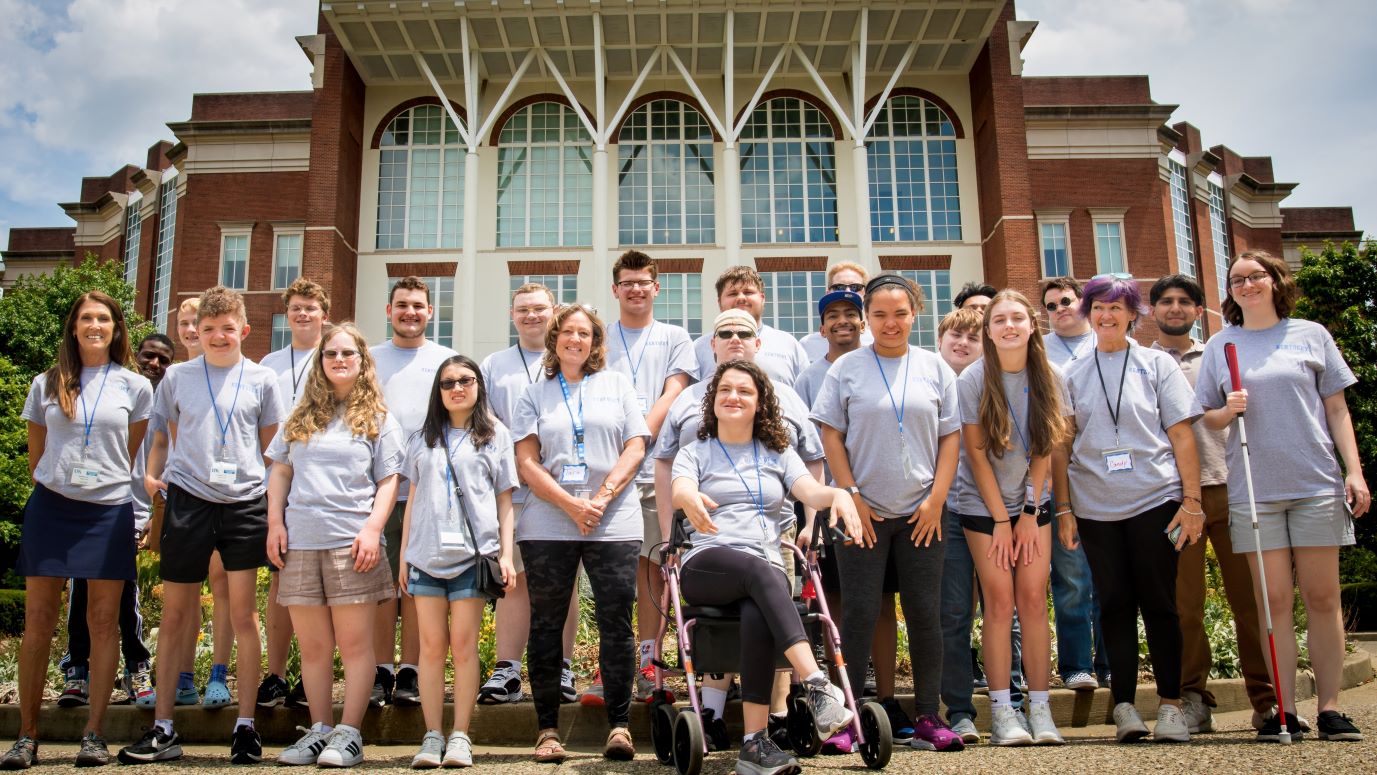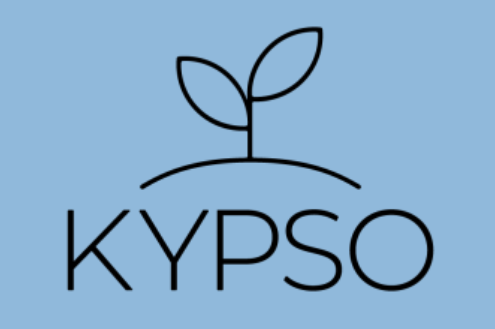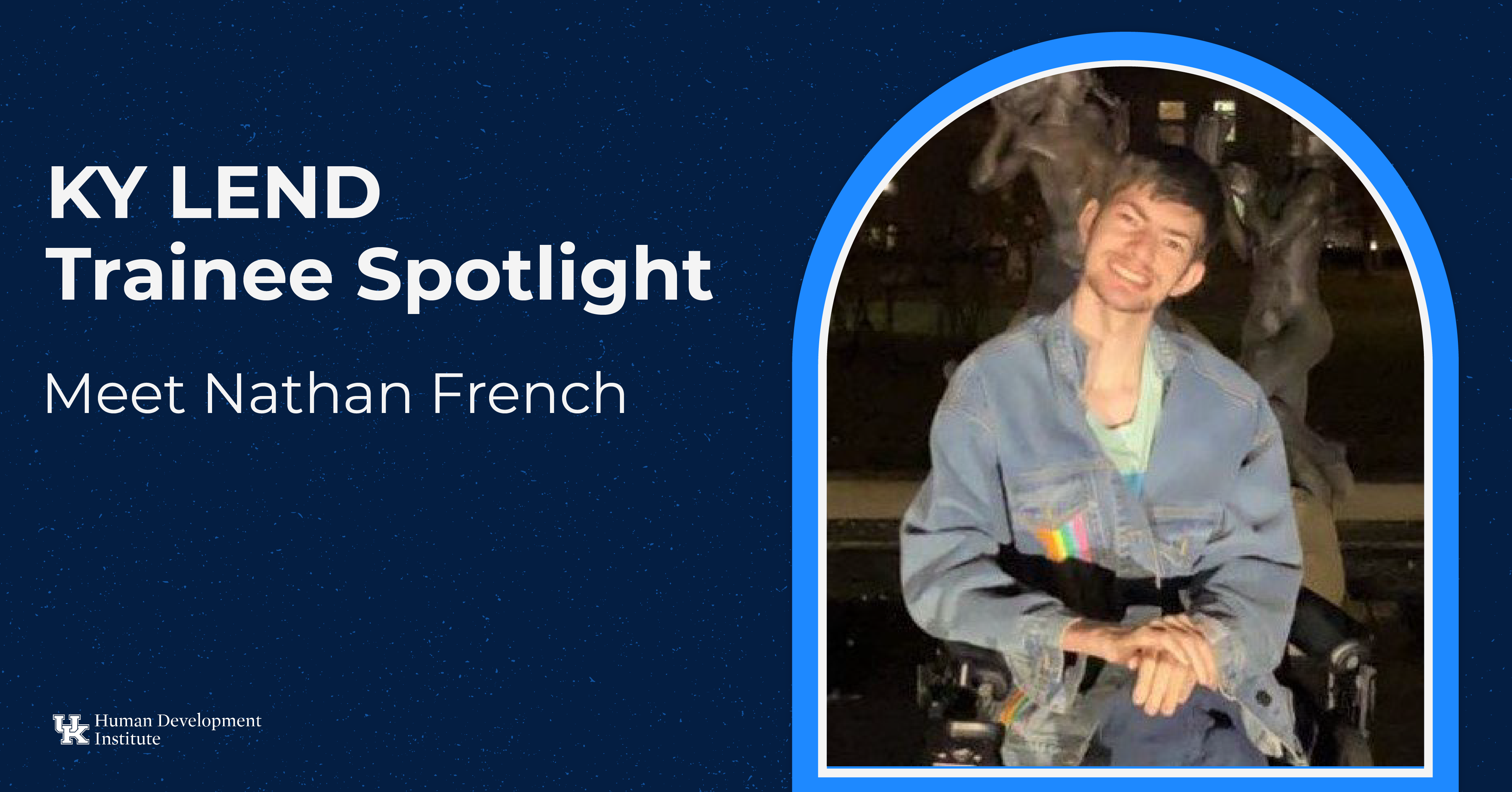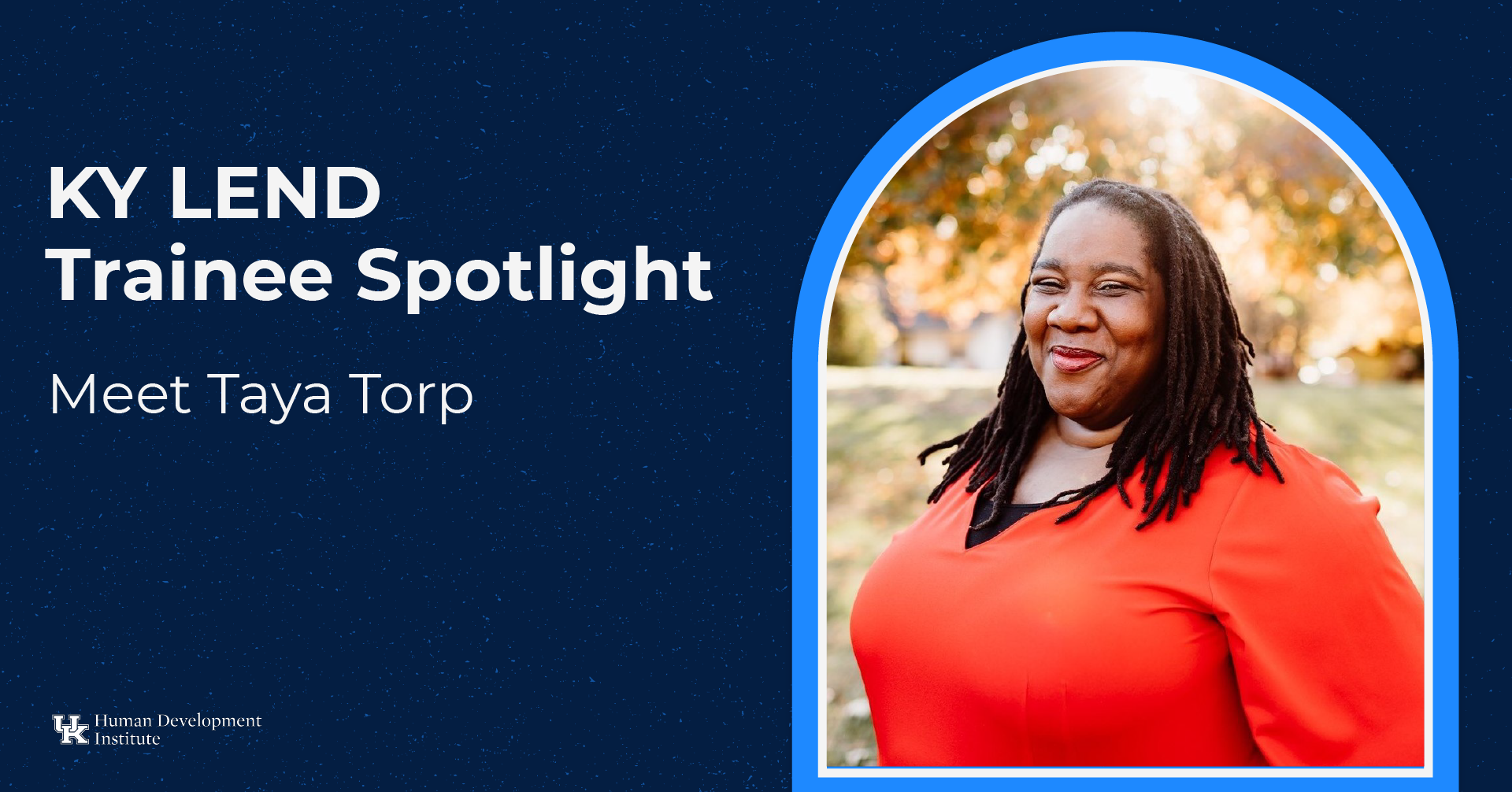In 2020, Kentucky students with disabilities who had exited high school in the previous year were asked which resource in high school had continued to help them the most in their current post high school lives. Of the 2,256 responses, the top response (39.2%) was “a teacher, counselor or principal,” followed next by “vocational training” (20.3%).
The question comes from a YOYO (Youth One Year Out) survey, part of a federal data collection effort regarding the transitional experiences of students with disabilities one year after their high school exit. In Kentucky, the data collection is facilitated by UK’s Human Development Institute (HDI) on behalf of the Kentucky Department of Education, through an initiative called KYPSO (Kentucky Post School Outcomes Center).
KYPSO works closely with Kentucky school districts to create the YOYO surveys, train the educators conducting the one-on-one surveys, aggregate each district’s data into one statewide dataset and, perhaps most importantly, work with school district administrators to interpret their district’s data and create further goals and plans of action.
The data collected by each district plays an important role in both policymaking and district funding. Kentucky goes well beyond simply checking the boxes to meet the federal requirements, though.
“Kentucky has done an excellent job of making secondary transition a priority,” Dr. Tony LoBianco, principal investigator and project director of KYPSO, said. “We have kind of served as a model for a few other states and how they go about doing this.”
The federal requirements for post-school outcomes data are relatively small. States must report, on the state-level only, three data points, those being the percentage of those who are no longer in secondary school, had IEPs in effect at the time they left and were:
- enrolled in higher education within one year of leaving high school
- enrolled in higher education or competitively employed within one year of leaving high school
- enrolled in higher education, competitively employed, enrolled in other education or training, or in some type of employment within one year of leaving high school.
While some states are able to meet these requirements without conducting one-on-one student interviews in every district, either by taking a smaller sample from a few districts or by using other data sources to determine values for the mandatory data points, a quick look at a KYPSO annual report shows that Kentucky’s efforts are focused on far more than meeting minimum requirements. Interviewing students one-on-one engages Kentucky school districts in all phases of a rich and thorough data collection and reporting process, missing no opportunity to improve transition outcomes.
“The general public should care about [this] because we’re providing data that tells us about what the future of our youth is going to look like. People should know what kids with disabilities are doing,” Dr. LoBianco said. “People directly in the field of education should care about KYPSO because we’re giving them direct information about their kids and what they could be doing better.”
As critical as the data is, KYPSO staff are aware that raw data can’t always tell the full story, and they hope to bring forth their expert analyses into Kentucky school districts to continue supporting student transition into adult life. An important clarification Dr. LoBianco makes about the work KYPSO does is that people with disabilities are not a monolithic group.
“There are so many different needs, and what may work for one person may not work for another person,” Dr. LoBianco said. “I also think sometimes it’s underutilized the amount of support that we can offer. There is really nothing more valuable for schools to do than to sit down with some experts and have plans for how they are going to help our youth transition to adult life… We’re here to help [educators] with that, and I hope they use it.”
KYPSO’s public data page allows users to view data by varying demographic combinations and by disability category, showing distinctive differences in the transitional experiences among varying groups. One noted disparity is that, among female and male respondents, females tend to have higher post-secondary education rates, while males tend to have higher employment rates. Having access to consistent annual data allows researchers and educators to notice and address these systemic trends.
“I would love for there to be the ability to follow up longer term. We don’t know what’s happening five years out… ten years out…” Dr. LoBianco said.
While KYPSO does not have the funding for longer-term follow-up right now, Dr. LoBianco sees an opportunity for future research. YOYO surveys are highly effective at allowing special education researchers and educators to know what is happening in the immediate year after high school, but transition outcomes, as a whole, extend much further.
If you have questions or would like to chat about transition resources, KYPSO staff can be reached by email at information@kypso.org.




